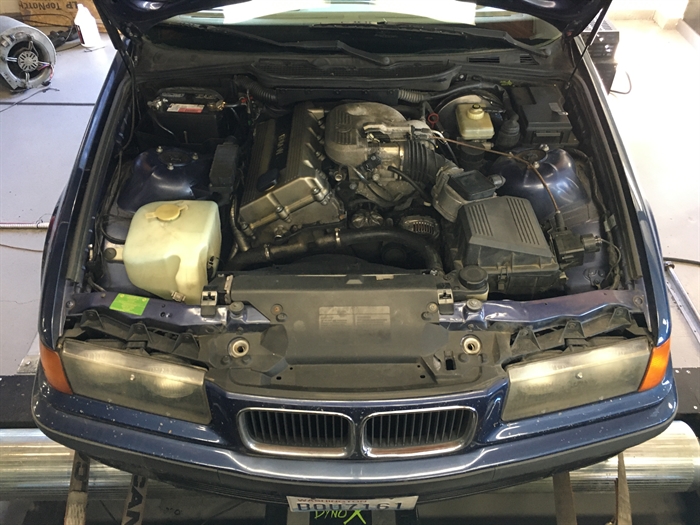Secret Attributes to Search For When Acquiring an Engine for Automotive Applications
When thinking about the acquisition of an engine for automobile applications, a number of vital features warrant mindful evaluation to ensure optimum efficiency and performance. From power and performance capabilities to sustain resilience, adherence, and efficiency to exhausts requirements, each element plays a vital role in determining the engine's suitability for particular automotive demands. Cost-effectiveness continues to be an essential factor in the decision-making procedure, balancing high quality with financial considerations. These attributes collectively add to the general performance and dependability of the engine, affecting the driving experience and long-term contentment of the individual.
Power and Efficiency
When selecting an automotive engine, customers prioritize power and efficiency to guarantee optimal driving experience and performance. A well-performing engine not just delivers power efficiently yet likewise runs efficiently throughout various speed ranges and driving conditions.
Customers frequently consider the engine's torque result along with its power ranking. Torque, determined in pound-feet (lb-ft) or Newton-meters (Nm), mirrors the engine's rotational pressure, influencing the automobile's capability to tow, climb slopes, and accelerate from grinding halt. A balance in between power and torque is vital for accomplishing a versatile and responsive driving experience. In addition, factors such as engine variation, turbocharging, and hybrid modern technologies play significant duties in enhancing both power and efficiency degrees. Ultimately, choosing an engine that offers a potent mix of power and performance guarantees a reliable and rewarding driving experience. bmw 318ti.
Gas Performance
Optimizing gas efficiency is an extremely important consideration for consumers when reviewing automotive engine choices. Modern engines with attributes like direct gas shot, turbocharging, and variable shutoff timing can considerably boost fuel effectiveness by boosting burning procedures and lowering energy loss.

Sturdiness and Reliability
Accomplishing long-lasting efficiency and dependable procedure is essential for customers evaluating the toughness and reliability of vehicle engines. When considering an engine for vehicle applications, resilience describes the engine's capacity to endure wear, stress and anxiety, and severe operating problems over an extensive period. Dependability, on the various other hand, suggests that the engine can constantly perform its designated feature without unanticipated break downs or failings.
Customers need to try to find engines built with high-quality products and specific engineering to guarantee durability. Components such as crankshafts, pistons, and bearings need to be durable to deal with the engine's power outcome without early wear. In addition, engines equipped with advanced cooling systems, effective lubrication, and robust filtering systems have a tendency to display greater degrees of dependability.
Routine upkeep and adherence to supplier referrals are additionally essential consider protecting an engine's longevity and reliability. By adhering to upkeep timetables, making use of suggested fluids, and attending to any type of problems quickly, consumers can make best use of the life-span and efficiency of their vehicle engines. Eventually, webpage prioritizing sturdiness and reliability in engine selection can bring about an extra gratifying ownership experience with fewer unanticipated disruptions.
Discharges Compliance
Making certain conformity with emissions regulations is a crucial aspect of reviewing vehicle engines for environmentally aware customers. With enhancing issues about air top quality and ecological effect, strict exhausts requirements have been established around the world to lower damaging contaminants released into the environment. When acquiring an engine for auto applications, it is necessary to consider its discharges compliance to minimize the carbon footprint and abide by legal requirements.
Modern engines are outfitted with sophisticated exhaust control innovations such as catalytic converters, exhaust gas recirculation (EGR) systems, and selective catalytic decrease (SCR) to reduce unsafe exhaust gases like nitrogen oxides (NOx), carbon monoxide (CARBON MONOXIDE), and hydrocarbons (HC) These systems play a vital role in ensuring that the engine satisfies the defined discharges standards and operates within acceptable restrictions.

Cost-effectiveness
When visit this site considering automobile engine acquisitions, examining cost-effectiveness is extremely important for customers seeking both performance and value. Cost-effectiveness in engine acquisition involves more than just the preliminary acquisition cost. It includes the total expenditures related to maintenance, fuel usage, and prospective repair services over the engine's life-span. Choosing an engine that offers a balance between long-term savings and in advance costs can result in considerable advantages for the customer.
Engines that are made to make the most of fuel economic situation can lead to significant savings over time, particularly for people who drive frequently or over long distances. bmw 318ti. Additionally, considering the schedule and affordability of extra components and servicing can contribute to the overall cost-effectiveness of an engine.

Conclusion
In final thought, when buying an engine for auto applications, it is essential to think about crucial attributes such as power and performance, fuel resilience, reliability and effectiveness, exhausts conformity, and cost-effectiveness. These aspects are crucial in making certain that the engine fulfills the needs of the lorry and runs successfully in numerous driving problems - bmw 318ti. Making a notified decision based on these criteria will ultimately result in a reliable and successful automobile engine purchase
From power and efficiency abilities to fuel adherence, resilience, and efficiency to exhausts requirements, each aspect plays a critical function in identifying the engine's viability for certain automobile demands. Engines created to run on alternative gas such as electric power, crossbreed systems, or biofuels can provide better fuel economy and reduced discharges compared to standard gasoline or diesel engines. Customers ought to meticulously think about the gas efficiency rankings and technologies included into auto engines to make informed purchasing decisions that straighten with their concerns for price savings and sustainability.
When taking into consideration an engine for automobile applications, longevity refers to the engine's capability to withstand wear, anxiety, and harsh my company operating conditions over an extensive period.In final thought, when purchasing an engine for automobile applications, it is critical to think about key functions such as power and efficiency, gas longevity, reliability and efficiency, exhausts conformity, and cost-effectiveness.